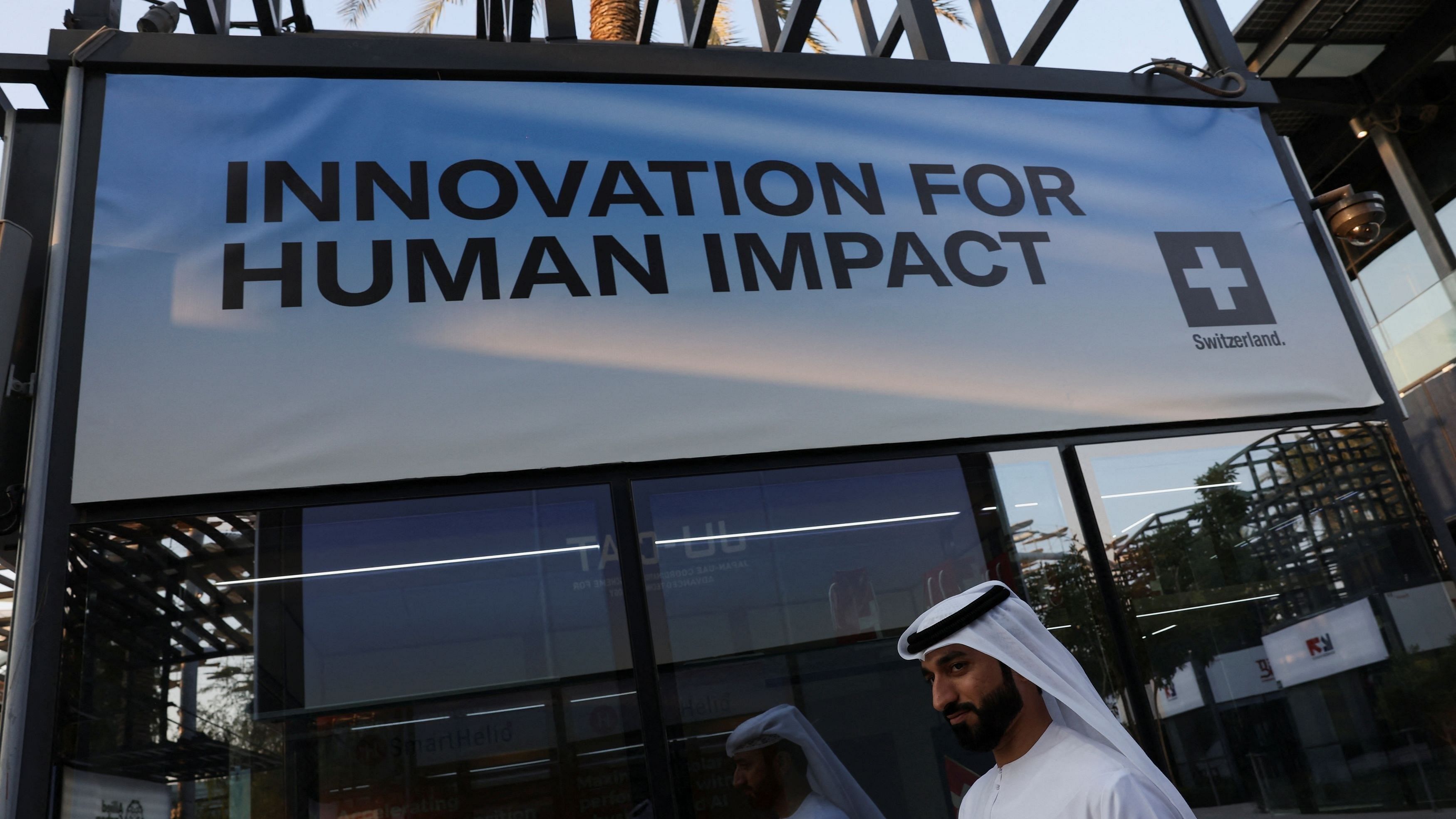
United Nations Climate Change Conference COP28, Dubai.
Credits: Reuters Photo
Dubai: The UN's climate body on Monday published its latest draft text of the deal it hopes to reach at the COP28 summit in Dubai, which includes a range of actions countries could take to reduce emissions.
The list did not refer directly to a phase out of fossil fuels.
The relevant section of the text said that parties recognize "the need for deep, rapid and sustained reductions in GHG (greenhouse gases) emissions and calls upon Parties to take actions that could include, inter alia:
(a) Tripling renewable energy capacity globally and doubling the global average annual rate of energy efficiency improvements by 2030.
(b) Rapidly phasing down unabated coal and limitations on permitting new and unabated coal power generation.
(c) Accelerating efforts globally towards net zero emissions energy systems, utilizing zero and low carbon fuels well before or by around mid-century.
(d) Accelerating zero and low emissions technologies, including, inter alia, renewables, nuclear, abatement and removal technologies, including such as carbon capture and utilization and storage, and low carbon hydrogen production, so as to enhance efforts towards substitution of unabated fossil fuels in energy systems.
(e) Reducing both consumption and production of fossil fuels, in a just, orderly and equitable manner so as to achieve net zero by, before, or around 2050 in keeping with the science.
(f) Accelerating and substantially reducing non-CO2 emissions, including, in particular, methane emissions globally by 2030.
(g) Accelerating emissions reductions from road transport through a range of pathways, including development of infrastructure and rapid deployment of zero and low emission vehicles.
(h) Phasing out of inefficient fossil fuel subsidies that encourage wasteful consumption and do not address energy poverty or just transitions, as soon as possible.